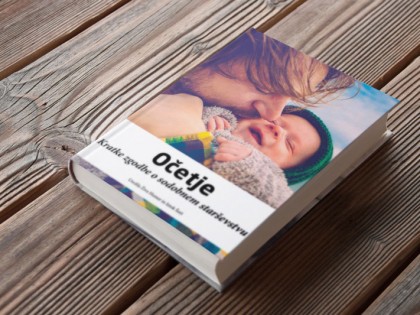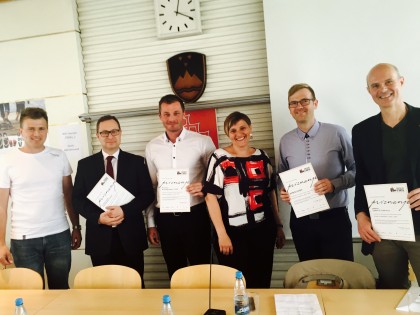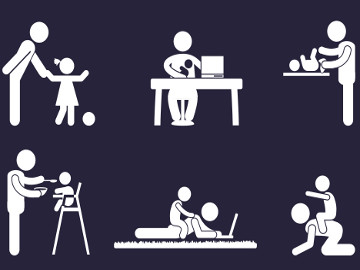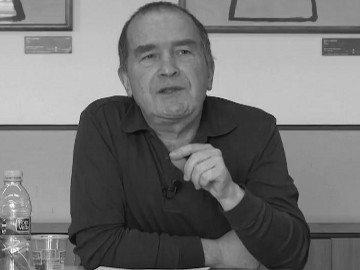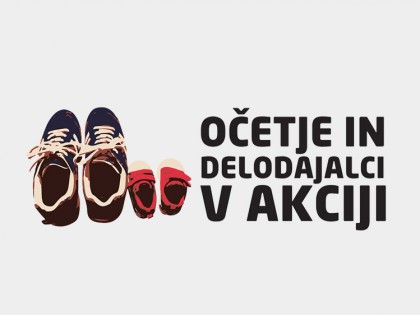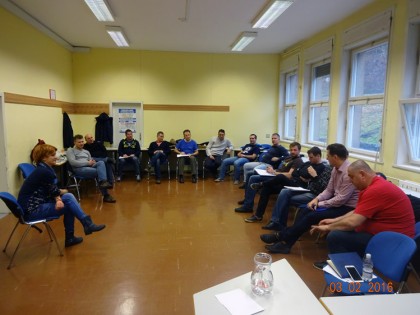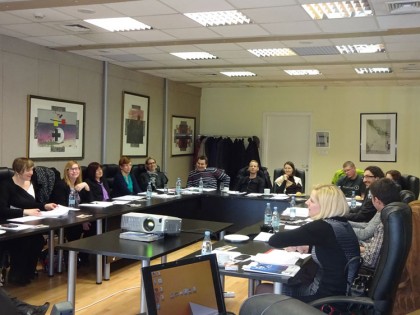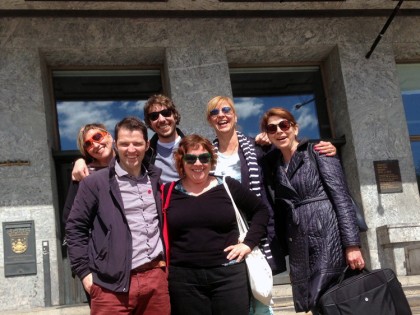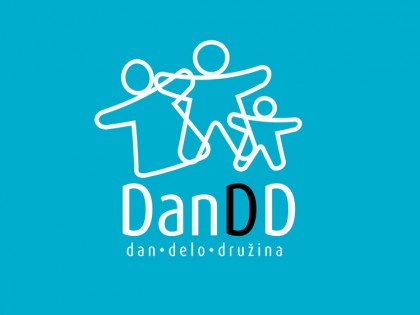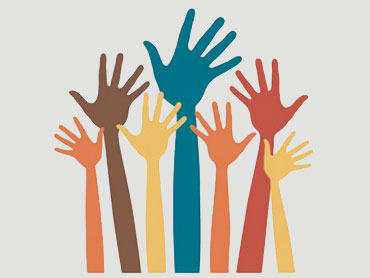Zgodbe so prvoosebne in subjektivno (ter anonimno) razkrivajo kompleksne položaje in premisleke očetov, kar razumeva kot prispevek k emancipaciji moških v Sloveniji. Štirideset let po tem, ko so ženske pod geslom »osebno je politično« začele tlakovati pot družbenim spremembam tako, da so najprej v varnih prostorih in nato še v javnosti pripovedovale o osebnih izkušnjah in občutjih, je ta korak nedvomno nujen, saj doslej moški o svojem položaju večinoma niso premišljali na tak način.– “Očetje: Kratke zgodbe o sodobnem starševstvu” (Zbirka 24 kratkih zgodb sodobnih očetov o dilemah, konfliktih, občutkih in razmišljanjih, s katerimi se srečujejo v vlogi očeta)
Poleg sprememb v sferi dela, so se spremembe v zadnji desetletjih zgodile na področju očetovstva. Očetje se danes v večji meri vključujejo v skrb za otroke v primerjavi s prejšnjimi generacijami. Z enakopravnim očetovanjem in večjo vključenostjo v družinsko življenje si moški prizadevajo presegati tradicionalne spolne vloge in dosegati večjo enakost v partnerstvu, a pri tem niso vedno deležni družbene podpore.
Zato je pomembno medsebojno sodelovanje zaposlenih očetov, sindikatov in delodajalcev pri identifikaciji potreb in vzpostavljanju možnih ukrepov, upoštevajoč raznolikost potreb po usklajevanju dela in družine (razne oblike zaposlitev in položajev na delovnem mestu).
V predstavitvenem videu projekta Očetje in delodajalci v akciji o različnih vidikih očetovstva pripovedujejo: mag. Ružica Boškić (Ministrstvo za delo, družino, socialne zadeve in enake možnosti), Marko Funkl (Gibanje za dostojno delo in socialno družbo), Žiga Planinec (policijski inšpektor III, Generalna policijska uprava, Policijska akademija, Center za raziskovanje in socialne veščine), Iztok Arbiter (Support & Trade d.o.o.), Damijan Omerza (direktor za kadre in kakovost v podjetju GoOpti in mag. Marko Filli (generalni direktor RTV Slovenija).
Mag. Ružica Boškić iz Ministrstva za delo, družino, socialne zadeve in enake možnosti pripoveduje o ukrepih usklajevanja dela in družine in pravicah, ki jih zagotavlja država.
Marko Funkl iz Gibanja za dostojno delo in socialno družbo pripoveduje o položaju in težavah prekarno zaposlenih (očetov) v Sloveniji.
Žiga Planinec (policijski inšpektor III, Generalna policijska uprava, Policijska akademija, Center za raziskovanje in socialne veščine) pripoveduje, s kakšnimi težavami se soočajo policisti pri usklajevanju plačanega dela in družine, zakaj so se pridružili projektu Očetje in delodajalci v akciji in kakšna so njihova pričakovanja glede sodelovanja v pilotnem preizkusu.
Iztok Arbiter, direktor Support & Trade d.o.o. pripoveduje, zakaj so se v podjetju pridružili projektu Očetje in delodajalci v akciji, kakšna so njihova pričakovanja in katere ukrepe Prilagodljivega paketa ukrepov ODA bodo preizkusili.
Damijan Omerza, direktor za kadre in kakovost, GoOpti pripoveduje, zakaj so se v podjetju pridružili projektu Očetje in delodajalci v akciji, kakšna so njihova pričakovanja in katere ukrepe Prilagodljivega paketa ukrepov ODA bodo preizkusili.
Mag. Marko Filli, generalni direktor RTV Slovenija pripoveduje, zakaj so se v organizaciji pridružili projektu Očetje in delodajalci v akciji, kakšna so njihova pričakovanja in katere ukrepe Prilagodljivega paketa ukrepov ODA bodo preizkusili.
Opomba: izjave so bile posnete decembra 2015, zato se spremembe na področju očetovskega dopusta nanašajo na leto 2016 (podaljšanje plačanega dela očetovskega dopusta na 20 dni in skrajšanje neplačanega dela na 50 dni).
O projektu
V začetku leta 2015 se je začel izvajati projekt “Očetje in delodajalci v akciji (ODA)”, ki je sofinanciran iz Programa Norveški finančni mehanizem 2009-2014. Projektno partnerstvo sestavljamo: Mirovni inštitut, Fakulteta za družbene vede (UL), Zveza svobodnih sindikatov Slovenije, Nicha d.o.o. in norveški partner Reform – resource centre for men.
Cilji projekta
1.
Večja ozaveščenost o enakosti spolov v Sloveniji
2.
Defeminizacija usklajevanja poklicnega in družinskega življenja
3.
Prepoznavanje in vključevanje raznolikosti potreb po usklajevanju poklicnega in družinskega življenja
Ciljne skupine
Zaposleni očetje
Delodajalci
Mediji
Splošna javnost
Kdo smo
Mirovni inštitut
-

dr. Živa Humer
Vodja projekta
-

dr. Majda Hrženjak
Raziskovalka
-

mag. Mojca Frelih
Raziskovalka
-

dr. Iztok Šori
Raziskovalec
-

mag. Franja Arlič
Finančnica
Fakulteta za družbene vede
-
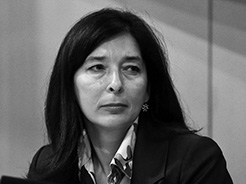
dr. Aleksandra Kanjuo Mrčela
Koordinatorica na FDV UL
-
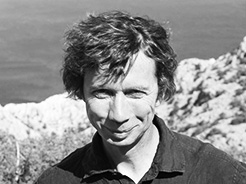
dr. Janez Štebe
Raziskovalec
-
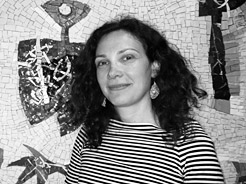
dr. Janja Vuga
Raziskovalka
Zveza svobodnih sindikatov Slovenije
-

mag. Andreja Poje
Koordinatorica na ZSSS
-

Irena Štamfelj
Raziskovalka
Nicha d.o.o.
-

mag. Lidia Pavlin
Koordinatorica na Nicha d.o.o.
-

mag. Marjeta Kirn Kljajič
Izvajalka projektnih aktivnosti
Reform – resource centre for men
-

Ole Bredesen Nordfjell
Koordinator pri Reform
-

Daniel Paul Getz
Raziskovalec
Posvetovalno telo
V okviru projekta je bilo vzpostavljeno Posvetovalno telo ODA, ki je spremljevalno telo projekta, s poslanstvom pridobitve strokovne podpore projektni skupini, obveščanja zainteresirane (strokovne in splošne) javnosti o projektu Očetje in delodajalci v akciji in njegovih izsledkih. Članstvo smo oblikovali z željo po čim večjem vključevanju predstavništva ciljnih skupin in povečanju vpliva na spremembe v praksi.
Članici in člana
(po abecednem vrstnem redu)
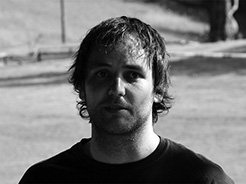
Marko Funkl
Gibanje za dostojno delo in socialno družbo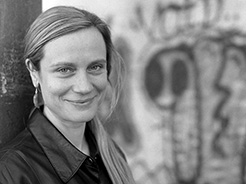
dr. Metka Kuhar
UL FDV
dr. Sonja Robnik
MDDSZ
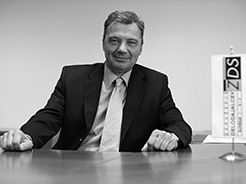
Jože Smole
Združenje delodajalcev Slovenije
Partnerske organizacije
Mirovni inštitut
Univerza v Ljubljani, Fakulteta za družbene vede
Na Fakulteti za družbene vede že vrsto let sistematično raziskujejo na področjih spolov, dela in problematike usklajevanja poklicnega življenja in družine. V zadnjem desetletju je bila fakulteta vključena v mednarodne projekte povezane s temo tega projekta:
Spreminjajoči se trgi dela, politike blaginje in državljanstvo, COST A 13, Delovna skupina o problematiki spola (1999 -2003).
Spol, starševstvo in spreminjajoča se delovna mesta v Evropi, 5. okvirni program Evropske unije (2003-2005).
Spol, delo in zaposlitev v desetih državah kandidatkah iz centralne in vzhodne Evrope, Evropska fundacija (2003-2004).
Mladim materam/družinam prijazno zaposlovanje, program pobude Equal, ESS (2004-2006).
Starši med delom in družino, Urad za enake možnosti RS (2004-2005).
Usklajevanje dela in družbenega blagostanja v Evropi (RECWOWE), FP6, Mreža odličnosti. Usmeritev: Družina, delo in režimi blagostanja (2006-2011). V okviru tega sodelovanja je med mnogimi objavami, v katerih so kot soavtorice bile raziskovalke iz FDV, letos pod uredništvom svetovno znane raziskovalke očetovstva prof. Barbare Hobson izšla knjiga »Work-life Balance« pri Oxford University Press.
Zveza svobodnih sindikatov Slovenije
ZSSS se s tematiko enakih možnosti moških in žensk intenzivneje ukvarja tudi preko odbora za enake možnosti, ki ga vodi mag. Andreja Poje. Odbor je osredotočen na iskanje načinov, kako zagotoviti enake, boljše možnosti v okviru dela za oba spola. Prizadevanja potekajo tudi na ravni različnih pogajanj, ko se predstavniki ZSSS zavzemajo za pravice zaposlenih žensk. Svoje aktivnosti na omenjenem področju smo pričeli celoviteje obravnavati s projektom »Plačna vrzel – od znanja k uveljavljanju pravic«, ki je potekal preko Evropske komisije v letu 2013.
Nicha d.o.o.
Reform – resource centre for men
Reform izvaja različne aktivnosti: politično in družbeno zagovorništvo v tisku in medijih, individualno svetovanje, skupine za samopomoč pri obvladovanju jeze, pravno svetovanje, telefonska linija za pomoč moškim v stiski, izdaja publikacij, organizacija seminarjev in predavanj.
Sodelovali so pri mnogih nacionalnih in mednarodinih projektih (med njimi):
Equal Partners – Reconsidering the Role of Men in Work and Private Life (2005 – 2006).
FOCUS – Fostering Caring Masculinities (2006-2007).
Papparingen (2009-2010). Cilj projekta je bil testiranje in mapiranje načinov organiziranja skupin za mlade očete na Norveškem. Vzpostavljene so bile tri pilotne skupine, katerih cilj je bil okrepiti kompetence očetov pri skrbi za otroke in vključevanje očetov v skrbstveno vlogo v družinah.
Tiltak 33 (2012 – še poteka). Izobraževanja in usposabljanja za očete o enakosti spolov. Ciljna skupina so javni uslužbenci, ki zagotavljajo storitve za družine z majhnimi otroki.
Financerji
O projektu
S projektom v ospredje postavljamo enakopravno očetovstvo ter pomen in vlogo medsebojnega sodelovanja zaposlenih očetov, delodajalcev in sindikatov pri razvoju in preizkusu novih strategij in možnosti usklajevanja delovnega in družinskega življenja, ki konkretno naslavljajo aktualne potrebe zaposlenih očetov.
očetje na vodilnih, vodstvenih položajih, katerih delovno mesto zahteva dolge delovnike, neomejeno razpoložljivost in mobilnost;
očetje v prekarnih zaposlitvah, kot so samozaposleni, pogodbeni delavci, delavci preko študentskih napotnic, ki jih tradicionalni ukrepi usklajevanja delovnega in družinskega življenja sploh ne naslavljajo.
Cilji projekta
Spodbujanje enakopravnega vključevanja moških in žensk v družinsko življenje in skrb za otroke omogoča enakost spolov na vseh področjih življenja: v zasebnosti, na trgu dela in v politiki.
Spodbujanje večjega vključevanja moških v politike enakosti spolov in usklajevanja družinskega in poklicnega življenja, koriščenje ukrepov in njihovo soustvarjanje-skupno z delodajalci in sindikati.
Raznolikost potreb – s poudarkom na enakopravnem očetovstvu zaposlenih moških na vodstvenih, vodilnih položajih in/ali mladih v prekarnih oblikah zaposlitev.
V projektu bomo s kvalitativno in kvantitativno raziskavo ter analizo stanja identificirali potrebe in ovire zaposlenih očetov pri usklajevanju delovnega in družinskega življenja, pri čemer se osredotočamo na dve skupini očetov, na vodilnih in vodstvenih položajih ter v prekarnih zaposlitvah.
V sodelovanju z zaposlenimi očeti, delodajalci in sindikati bomo razvili model ukrepov usklajevanja delovnega in družinskega življenja ter ga izvedli v 6-mesečnem pilotnem preizkusu v izbranih podjetjih. Na podlagi raziskave in pilotnega preizkusa bomo pripravili priporočila za politike in spodbudili delovne organizacije k ovrednotenju že sprejetih ukrepov usklajevanja delovnega in družinskega življenja ter morebitni uvedbi novih ukrepov.
Ciljne skupine
Zaposleni očetje
Zaposleni očetje na vodilnih in vodstvenih položajih ter v prekarnih zaposlitvah, ki predstavljata dva diametralno nasprotna pola socialne in ekonomske moči ter virov:
1.
moški na vodilnih, vodstvenih položajih se pri usklajevanju dela in družine spopadajo z normami »idealnega delavca« in dolgimi delovniki z neomejeno časovno dostopnostjo in geografsko mobilnostjo, kar predstavlja oviro moškim za večje vključevanje v družinsko življenje.
2.
skupina zaposlenih očetov v prekarnih zaposlitvah je spregledana s strani tradicionalnih ukrepov usklajevanja poklicnega in družinskega življenja. Njihove negotove in sestavljene oblike dela terjajo povsem drugačne ukrepe usklajevanja dela in družine.
V kvantitativno študijo bo vključenih najmanj 200 zaposlenih očetov iz vseh regij Slovenije. V kvalitativno študijo bo vključenih 20 zaposlenih očetov. V pilot bo vključenih najmanj 40 očetov.
Delodajalci
Pomanjkanje ozaveščenosti o pomenu usklajevanja poklicnega in družinskega življenja za zadovoljstvo in delovno uspešnost zaposlenih in pomenu potrebnih ukrepih za zaposlene očete.
K sodelovanju bodo povabljeni delodajalci iz vseh regij Slovenije, izmed katerih bo najmanj 10-15 delodajalcev vključenih v projekt. V pilotu bodo sodelovali 4 delodajalci.
Medijska in splošna javnost
Kontakt
Živa Humer, vodja projekta
ziva.humer@mirovni-institut.si
Tel. 01 234 77 20
Spremljajte nas
Koordinator projekta
Mirovni inštitut
Inštitut za sodobne družbene in politične študije
Metelkova 6, 1000 Ljubljana
Telefon: +386 1 234 77 20
Fax: +386 1 234 77 22
E-pošta: info@mirovni-institut.si
Projektna spletna stran je nastala s finančno podporo Programa Norveškega finančnega mehanizma. Za vsebino na spletni strani je odgovoren Mirovni inštitut in zanjo v nobenem primeru ne velja, da odraža stališča Programa Norveškega finančnega mehanizma.



 Ariel Cubria, kubanski glasbenik, ki živi v Ljubljani
Ariel Cubria, kubanski glasbenik, ki živi v Ljubljani Ven Jemeršič, režiser
Ven Jemeršič, režiser Ivian Kan Mujezinović, basist in pevec skupine Čao Portorož
Ivian Kan Mujezinović, basist in pevec skupine Čao Portorož Matej Avanzo, direktor, SPORTANZO, šport in marketing, d.o.o.
Matej Avanzo, direktor, SPORTANZO, šport in marketing, d.o.o. dr. Žiga Vodovnik, profesor na Fakulteti za družbene vede Univerze v Ljubljani
dr. Žiga Vodovnik, profesor na Fakulteti za družbene vede Univerze v Ljubljani Slobodan Maksimović, režiser in scenarist
Slobodan Maksimović, režiser in scenarist